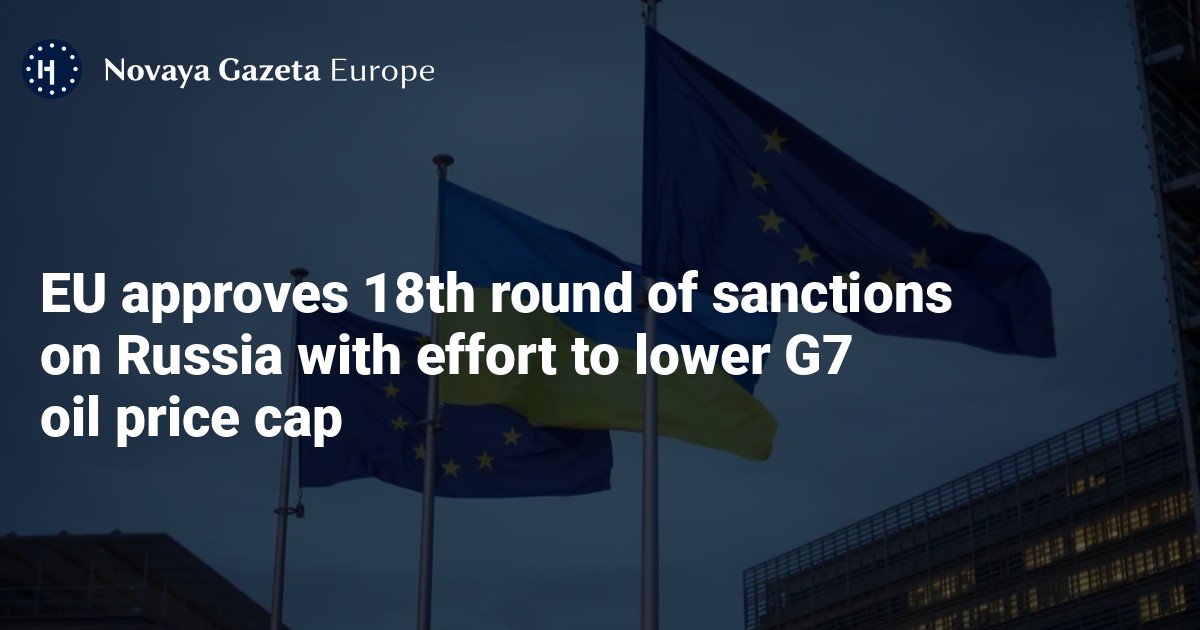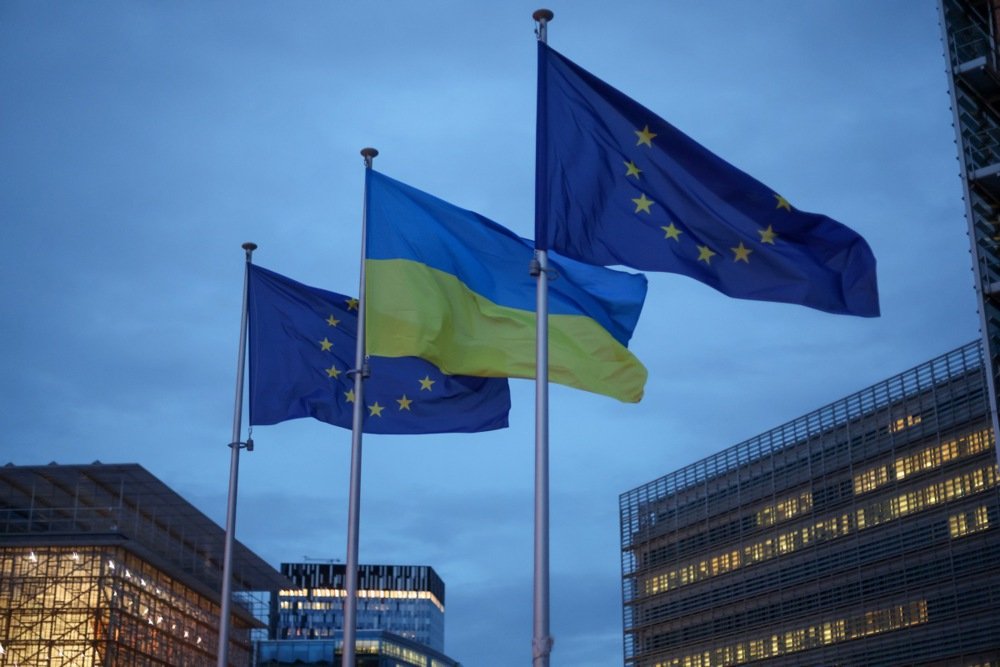




A view of European and Ukrainian flags in front of the EU institution headquarters in Brussels, Belgium, 24 February 2025. Photo: EPA/OLIVIER HOSLET
The EU has approved its 18th raft of sanctions against Russia, Reuters reported Friday, with a renewed focus on targeting the country’s oil and energy industry.
The sanctions, agreed after weeks of negotiations between EU member states — with Slovakia initially opposing the measure — include a plan to impose a flexible price cap on Russian oil, set at 15% below its average market price. This will replace the fixed $60-per-barrel cap introduced by the G7 and other Western countries in December 2022.
The EU and UK had been seeking to lower the G7 cap for two months after a fall in oil futures began to severely limit the effectiveness of the existing $60-per-barrel limit. The White House, according to Reuters, opted out of strengthening the measure, leaving Brussels to move on its own.
“The EU just approved one of its strongest sanctions packages against Russia to date,” EU foreign policy chief Kaja Kallas posted on X.
Kremlin spokesperson Dmitry Peskov dismissed the EU’s latest move, noting that Russia has “repeatedly stated that [it] considers such unilateral restrictions illegal”, according to Russian state-owned news agency TASS.
The new sanctions will also target Russia’s banking industry, with 22 medium- and smaller-sized banks now falling under restrictions, including the oil and gas sector-linked Surgutneftegazbank and growing fintech players Yandex Bank and Ozon Bank.
The EU has also banned all transactions with the Russian Direct Investment Fund — the country’s sovereign wealth fund — as well as all transactions with the Russian Nord Stream gas pipelines.
Restrictive measures have also been imposed against 26 commercial entities for circumventing existing financial sanctions, including seven in China, four in Turkey, and three in Hong Kong, according to diplomats cited by Reuters.
105 Russian vessels from Russia’s so-called shadow fleet have also been banned from entering EU ports or locks, or conducting ship-to-ship oil transfers in European waters, bringing the total number of shadow fleet vessels sanctioned by Brussels to over 400.
With the latest round, the EU has now imposed punitive sanctions against over 2,500 Russian companies, politicians, military figures, and business people since Russia’s full-scale invasion of Ukraine in 2022.
The sanctions must be renewed every six months and require unanimous agreement from all 27 member states. The EU’s existing sanctions were set to expire on 31 December.
